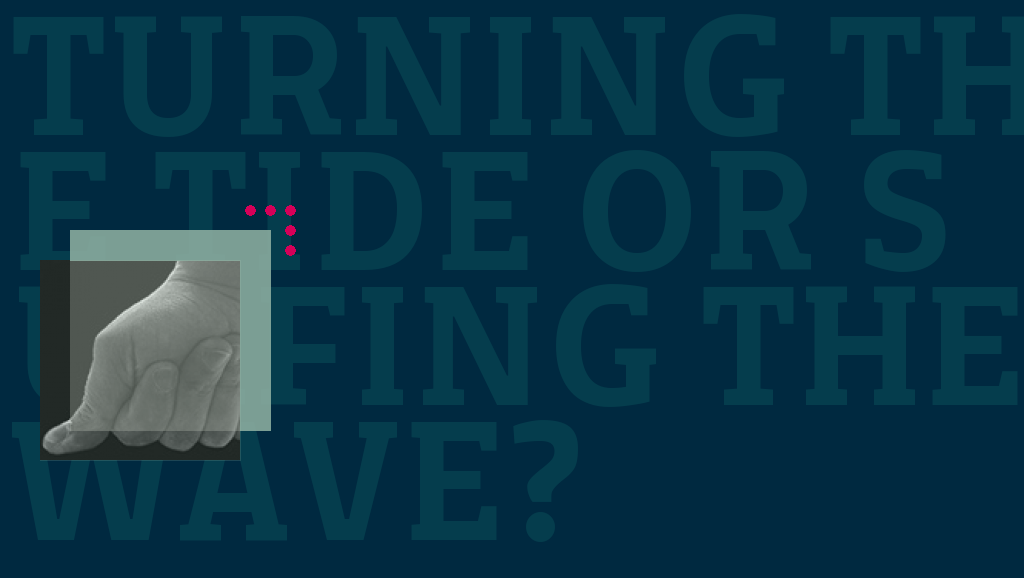We publish an excerpt from the paper by Simone Amaldi and Guido Gorgoni in which they explore the political and economic context in which the concept of Responsible Research and Innovation has gained attention and taken shape.
—
Turning the tide or surfing the wave? Responsible Research and Innovation, fundamental rights and neoliberal virtues.
The notion of Responsible Research and Innovation (RRI) has attracted growing attention. Up until now, the literature has focused on clarifying the principles for which research and innovation are responsible and on examining the conditions that account for managing them responsibly. Less attention has been reserved to exploring the political-economic context in which the notion of RRI is shaped and is gaining prominence as a discourse on and practice of governance. This article tries to address this aspect, by suggesting some preliminary considerations on the connections that can be established between the specific understanding of responsibility in RRI and the framing of responsibility in what has been synthetically defined as ‘neoliberalism’.
The existence and features of these connections between neoliberalism and RRI are debated. Borrowing from David Guston’s comments on anticipatory governance, the inclusive approach RRI has towards governance is not meant “to acquiesce to neoliberal ideology that would focus on governance to the diminishment of government” (Guston 2014, 226). On the contrary, it is a response to the failures of markets “to manage innovation effectively for social good” (Mills 2013), rejecting market mechanisms as the sole source of “the normative dimension of what counts as an ‘improvement'” (Von Schomberg 2013, 54) and building collaborative mechanisms that are able to complement them or, in some cases, replace them altogether. However, this asserted distance from neoliberalism is contested, and critics maintain that RRI is instead suspectedly close to neoliberal governance, basically because it depoliticizes debate and deliberation (Pellizzoni 2015, van Oudheusden 2014). A different, but complementary, objection regards the risk that the values and assumptions of RRI can reproduce the dominant structural inequalities characterizing the world stage when this approach is cast against a global perspective (Macnaghten et al. 2014, 195).
To disentangle this contested relationship between neoliberalism and RRI, we closely examine their respective understandings of the link between the responsible agent and society, and of the nature and scope of responsible action. In our exploration, we first illustrate the features of neoliberalism and its understanding of responsibility. Subsequently, we examine the specific characteristics of RRI, framing this concept as part of evolving responsibility paradigms. We then compare their understanding of agency and responsibility, showing that there are, indeed, considerable conceptual similarities.
Despite this proximity, we maintain however that a clear distinction between the two can be drawn if, and only if, the “normative anchoring” of RRI on fundamental rights is maintained. Despite their deep similarities in structure, this emphasis on rights can discern RRI from a simple recast of a neoliberal approach to responsibility. Without denying the limits and the possible drawbacks of RRI in practice, we maintain that ‘taking RRI seriously’ implies complementing the aspiration to a collective engagement towards societally desirable and ethically acceptable outcomes of research and innovation with an explicit reference to fundamental rights as a normative bound for the direction of science, technology and innovation. In the EU context, this means specifically considering the Charter of Fundamental Rights of the European Union and the European Convention on Human Rights as essential pillars of RRI. Taken together, these two elements can make RRI utterly different from a neoliberal model of responsibility.
(…continues…)
HERE THE ENTIRE ARTICLE
In Springer Open
In PMC US National Library of Medicine
Author information:
Simone Arnaldi
Interdepartmental Centre for Environmental, Ethical, Legal and Social Decisions on Emerging Technologies (CIGA), University of Padua, Padua, Italy.
Guido Gorgoni
Interdepartmental Centre for Environmental, Ethical, Legal and Social Decisions on Emerging Technologies (CIGA), University of Padua, Padua, Italy || Department of Political Science, Law and International Studies, University of Padua, Padua, Italy.
———-
(photo: Hand by David_Pacey from Flickr)
———-
















